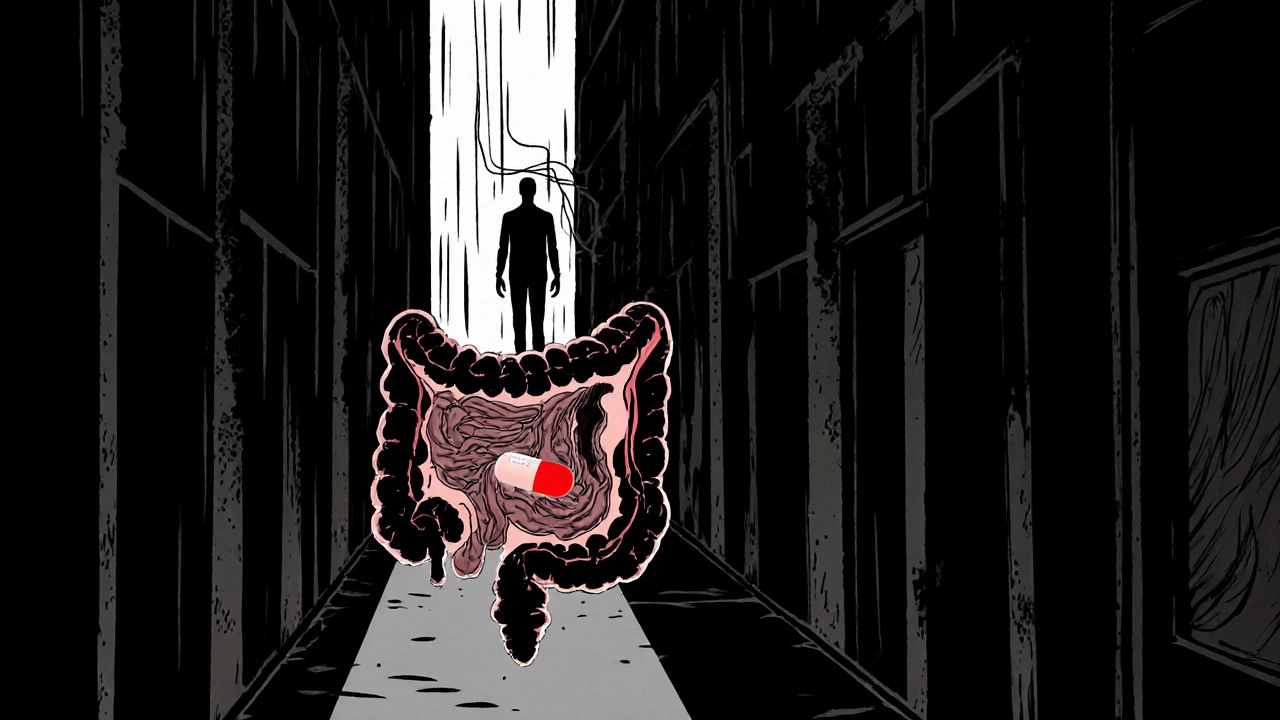Inflammatory Bowel Disease: What You Need to Know
When dealing with Inflammatory Bowel Disease, a chronic inflammation of the gastrointestinal tract that includes Crohn’s disease and ulcerative colitis. Also known as IBD, it can cause abdominal pain, diarrhea, and weight loss.
IBD inflammatory bowel disease mainly breaks down into two sub‑types: Crohn’s disease, which can affect any part of the gut from mouth to anus, and ulcerative colitis, limited to the colon and rectum. Crohn’s often creates patchy, deep ulcerations, while ulcerative colitis produces a continuous, superficial inflammation. Knowing the difference helps doctors pick the right meds and monitor complications.
Both forms share autoimmune pathways with other gut disorders, especially celiac disease. Celiac triggers an immune reaction to gluten, leading to similar intestinal damage. Research shows that patients with IBD are more likely to test positive for gluten‑sensitivity, and treating hidden celiac can ease IBD flare‑ups. The link between erosive esophagitis and celiac, highlighted in recent articles, reminds us to look beyond the gut when symptoms overlap.
Diet plays a huge role in keeping IBD under control. Soluble and insoluble fiber can bulk up stools, reduce diarrhea, and feed good gut bacteria. A three‑day high‑fiber meal plan, for example, can shorten a mild flare within days. However, during active inflammation, low‑residue diets may be recommended to give the bowel a break. Balancing fiber intake with symptom severity is a practical skill many patients learn through trial and error.
Medication strategies for IBD are constantly evolving. Traditional options include aminosalicylates, corticosteroids, and immunomodulators, but newer biologics target specific inflammatory molecules. Antibiotics also find a niche, especially when bacterial overgrowth complicates the picture. The latest breakthroughs in cefpodoxime research illustrate how refined antibiotic formulations aim to reduce resistance while still tackling gut‑related infections that can trigger IBD flares.
Living with IBD isn’t just about meds and meals; it affects mental health, work life, and even weight management. Many patients report unintended weight loss during active disease, while others gain weight after steroids taper off. Understanding how thyroid medication like levothyroxine can interact with gut absorption gives a fuller picture of the hormonal balance many IBD sufferers wrestle with.
Below you’ll find a curated set of articles that dive deeper into each of these areas— from the science behind celiac and esophageal links, to the newest antibiotic research, and practical tips on fiber‑rich diets. Whether you’re newly diagnosed or looking for the latest treatment updates, this collection offers concrete information you can apply right away.

Budesonide for Inflammatory Bowel Disease: How It Works, Benefits & Risks
Explore how budesonide works for Crohn's disease and ulcerative colitis, its dosing, benefits, side effects, and when to move to stronger therapies.
Continue Reading



